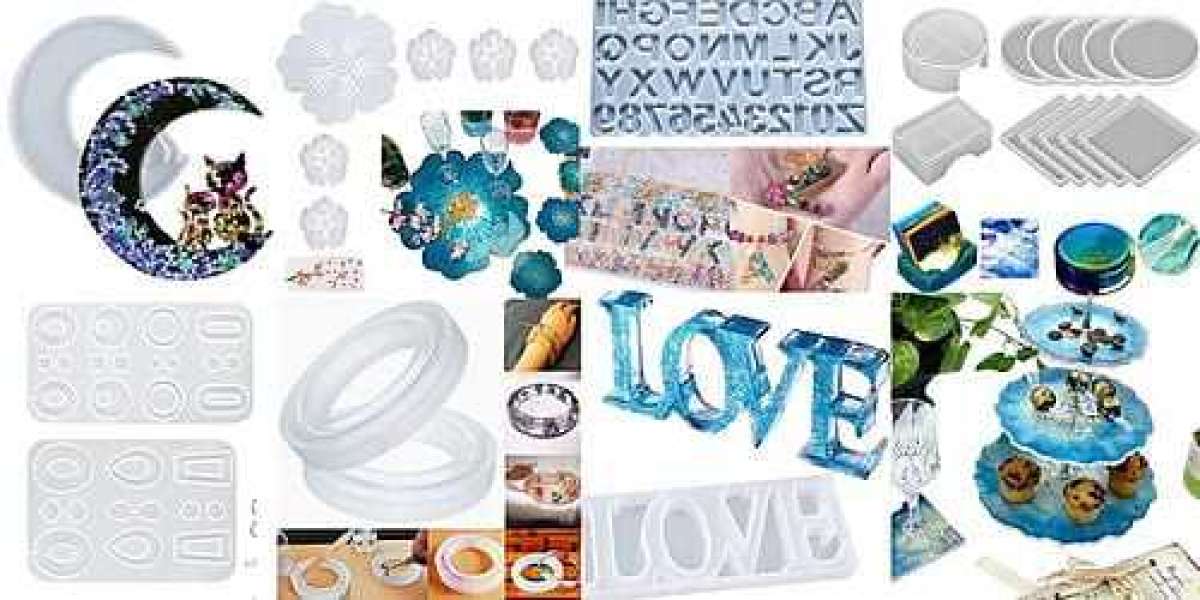Understanding Resin Molds
Resin molds come in various shapes, sizes, materials, and designs, each serving different purposes and offering unique advantages. Here are some common types of resin molds:
Silicone Molds:
Silicone molds are perhaps the most popular choice among resin crafters due to their flexibility, durability, and ease of use. They come in a multitude of shapes and sizes, including geometric shapes, flowers, animals, and more intricate designs. Silicone molds are reusable and can withstand high temperatures, making them suitable for both epoxy and polyester resins. They are also known for their excellent detail reproduction, capturing intricate patterns and textures with precision.
Plastic Molds:
Plastic molds are another common option, typically made from materials like polypropylene or HDPE (High-Density Polyethylene). While not as flexible as silicone molds, plastic molds are still suitable for a wide range of resin casting projects. They are often less expensive than silicone molds and can be a good choice for beginners or for projects where intricate details are not essential.
Metal Molds:
Metal molds, such as aluminum or stainless steel molds, are known for their durability and heat resistance. They are commonly used for casting resin jewelry, beads, and other small items requiring precise shapes and sizes. Metal molds can withstand repeated use and are easy to clean, making them a favorite among professional resin artists.
Wood Molds:
Wood molds offer a rustic charm and are suitable for projects where a natural or organic look is desired. They are often used for casting coasters, trinket dishes, and decorative items. Wood molds require proper sealing to prevent resin leakage and may not be as durable or long-lasting as silicone or metal molds. However, they can add a unique touch to your resin creations.
Choosing the Right Mold for Your Project
When selecting a resin mold for your project, consider the following factors:
Project Type: Determine the specific requirements of your project, such as size, shape, and level of detail. For intricate designs, opt for silicone molds that can capture fine details accurately. For simple shapes or larger items, plastic or metal molds may suffice.
Material Compatibility: Ensure that the mold material is compatible with the type of resin you plan to use. Most molds are suitable for epoxy resin, but if you're working with polyester resin or other specialty resins, check for compatibility to avoid any issues with curing or release.
Durability and Reusability: Consider how often you'll be using the mold and choose one that is durable enough to withstand repeated use. Silicone and metal molds are generally more durable and can be reused many times, while plastic and wood molds may wear out faster.
Cost: Determine your budget and weigh the cost of the mold against its quality and suitability for your project. While silicone molds may be more expensive upfront, their durability and reusability often make them a cost-effective choice in the long run.
Special Features: Some molds come with additional features such as built-in channels for pouring resin, pre-drilled holes for creating jewelry, or textured surfaces for adding unique finishes to your creations. Consider whether these features align with your project needs and preferences.
By carefully considering these factors, you can select the perfect resin mold to bring your creative vision to life. Whether you're casting intricate jewelry pieces, whimsical figurines, or functional household items, the right mold will play a crucial role in achieving beautiful and professional results.
In conclusion, resin crafting offers endless possibilities for artistic expression, and choosing the right mold is key to the success of your projects. With an understanding of the different types of resin molds available and careful consideration of your project requirements, you can confidently select the perfect mold to unleash your creativity and create stunning resin creations. Happy crafting!









Cathlene 1 Y
great blog!